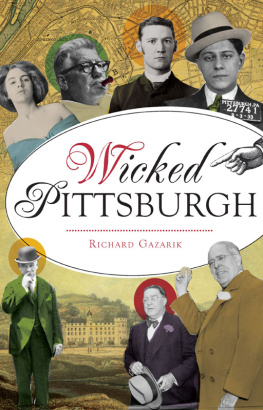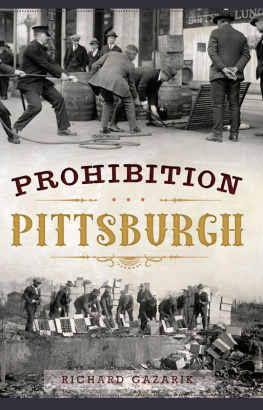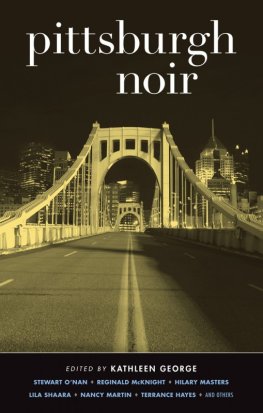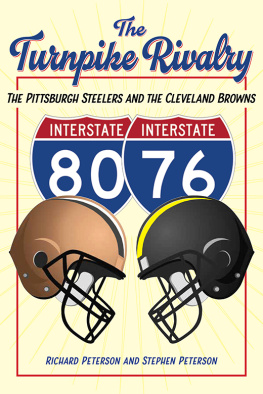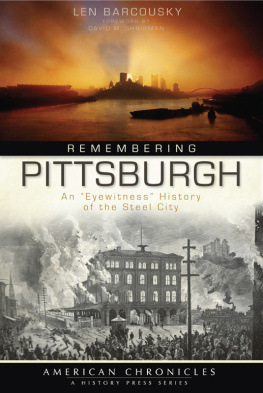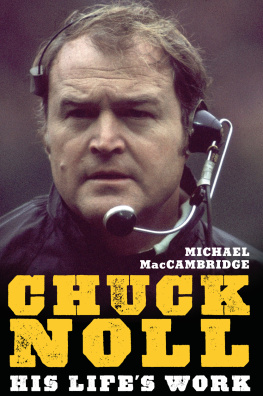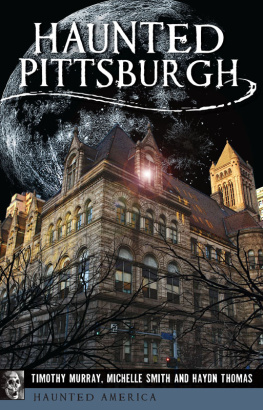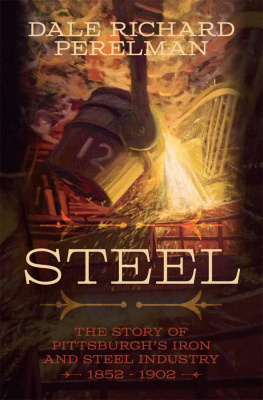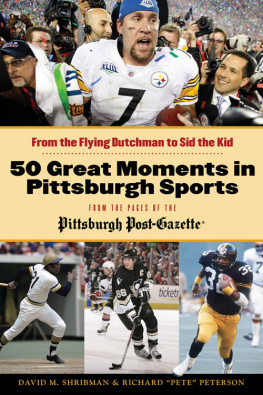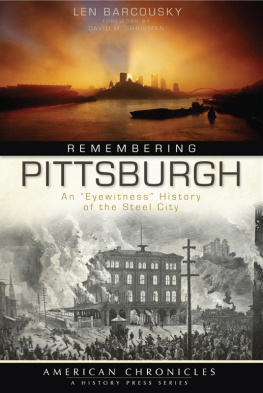


Published by The History Press
Charleston, SC
www.historypress.net
Copyright 2018 by Richard Gazarik
All rights reserved
First published 2018
E-Book edition 2018
ISBN 978.1.43966.542.8
Library of Congress Control Number: 2018945672
Print edition ISBN 978.1.46713.856.7
Notice: The information in this book is true and complete to the best of our knowledge. It is offered without guarantee on the part of the author or The History Press. The author and The History Press disclaim all liability in connection with the use of this book.
All rights reserved. No part of this book may be reproduced or transmitted in any form whatsoever without prior written permission from the publisher except in the case of brief quotations embodied in critical articles and reviews.
For Toni and Bill McLeod
CONTENTS
ACKNOWLEDGEMENTS
The Archives Service Center is a great starting place for any research on the history of Pittsburgh. Its collections contain a wealth of information about the city and people who governed Pittsburgh. Its friendly staff members went out of their way to provide information that I needed to complete this book. Historic Pittsburgh is a digital library connecting libraries, museums and universities in Pittsburgh to provide access to their respective historic books, maps and photographs. The staff at the Pennsylvania Room at the Carnegie Library maintains extensive clipping files on people and events on the citys history. The H. John Heinz History Center maintains the papers of Pulitzer Prizewinning journalist Ray Sprigle, who spent decades investigating crime and political corruption in the city for the Pittsburgh Post-Gazette. Sprigle won the Pulitzer Prize in 1938 for stories exposing Supreme Court justice Hugo Blacks membership in the Ku Klux Klan. The evidence that Sprigle uncovered included a copy of a resignation letter from Black written on the stationery of the Alabama Klan. Sprigles work uncovering the connection between racketeers and elected officials was invaluable in writing this book. J. Banks Smithers of The History Press provided encouragement and guidance in formulating the outline for this work, and editor Abigail Fleming caught my mistakes. Finally, my wife, Lucy, was a sounding board and editor for this work as well as my first two books.
Introduction
METROPOLIS OF CORRUPTION
All a nice man ever gets is a big wedding and a quiet funeral.
Senator James Coyne
Pittsburgh, over its history, has been a wicked city. At times it has been evil, sinful, immoral and corrupt. It accepted corruption as a way of life. Mayors, councilmen and police chiefs have plundered the city for their personal benefit. Reform movements came and went, but corruption continued. The Municipal League, the Voters Civic League, the Citizens Committee, the Law and Order Society and the Police Research Commission railed against election fraud and police corruption and conducted investigations into gambling, prostitution and liquor rackets.
Politicians, stung by public criticism, ordered police to clean up the city, but operations quickly went back to normal after the dust had settled. Pittsburgh suffered through its share of political bosses, voter fraud and election scandals, corrupt mayors and councilmen and dishonest cops and weathered its share of reform movements that had short-lived effects on governing.
Pittsburgh earned the title Metropolis of Corruption from muckraking journalist Walter Liggett, who came to Pittsburgh in the early 1930s to expose the links between politicians, police and bootleggers. Liggett, who was murdered by racketeers, published similar exposs in Boston, Washington, D.C., and Minneapolis in Plain Talk magazine. His investigation in Pittsburgh ranked the city on the same level as Detroit, Cleveland and New York City for corruption and violencealthough he said Pittsburgh had more vice per square block than any of these other cities. Big business worked together with gamblers, brothel operators, speakeasy owners, bootleggers and politicians, allowing vice and crime to embed itself in the fabric of the city.
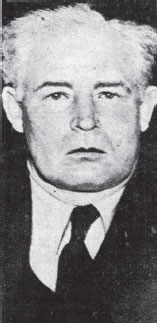
Walter Liggett, crusading editor of Plain Talk magazine, who chronicled corruption in Pittsburgh during Prohibition. He was murdered by gangsters in Minneapolis. From the Pittsburgh Post-Gazette Archives.
Liggett wrote:
It is very doubtful whether anywhere else in America there exists such debauched, dishonest or utterly incompetent public officials as these comprise the political machine which mismanages the affairs and systematically loots the treasuries of Pittsburgh and Allegheny County.Brazen political alliances of businessmen on the one hand and blind-piggers, gamblers, brothel proprietors and grafters on the other has no parallel in the United States today.There isnt a form of depravity that hasnt been put on a dividend basis in Pittsburgh, and even perversion is made to pay a profit.
Liggett exposed how ward chairmen sold concessions to criminals that allowed them to operate brothels and speakeasies and how the police department served as a collection agency for payoffs and bribes. He detailed how the courts allowed individuals charged with first-degree murder to remain free on bail and how policemen drank free at speakeasies while on duty. Liggett exposed the ineptness of the police, who were only able to solve one out of eighty gang killings during Prohibition. His story bought howls of denials from elected officials, but the Pittsburgh Press reminded its readers that sometimes, the truth hurts:
His story is not one to arouse pride among Pittsburghers. It is not a nice story to have emblazoned before the country and there will be ostrich-minded persons to say that such things should not be presented because they will give Pittsburgh a black eye. But the black eye is not caused by Liggetts wallop.
There is truth in the Liggett story, much truth and it has been presented in the past without arousing a sense of civic indignation sufficient to wipe out the controlling political forces which permit and foster the evil conditions which Mr. Liggett so flamingly presents. Thats where the black eye comes. Even Liggetts mistakes cannot controvert the fact there is more truth in the Liggett story than is good for Pittsburgh.
Pittsburgh during Prohibition was a boozocracy, said the Pittsburgh Post. Everyone was corrupt, from the beat cop to his bosses to city councilmen and the mayor. Even Prohibition agents could not be trusted. While Pittsburgh police officers often protected illegal distilleries from raids, federal agents accepted bribes and were arrested and convicted.
In 1923, the Internal Revenue Service sent undercover agent Saul Grill to Pittsburgh, posing as a corrupt agent willing to be bought. Grill had earned a reputation for his undercover work that led to the seizure of $2 million in pre-Prohibition liquors, including ten thousand cases of champagne, and the dismantling of a bootlegging operation in New York. While working in New Jersey, Grill accepted $85,000 in bribes as evidence against officials. Some of his cases were thrown out of court or overturned because his investigations were considered entrapment.
Next page
